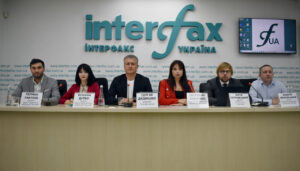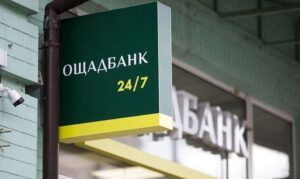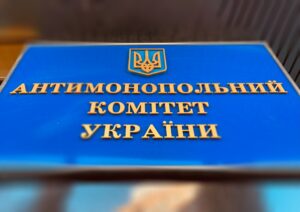
Kairat Satybaldy (Satybaldyuly), nephew of former Kazakh President Nursultan Nazarbayev, has returned illegally acquired assets worth $1.6 billion to the state since 2022, the press service of the Anti-Corruption Agency reported.
“Since 2022 until now, property assets and cash worth over 732.8 billion tenge or $1.6 billion illegally acquired by K. Satybaldyuly and persons related to him have been returned to the state,” the report said.
Of these, $661.5 million were found abroad and were returned to Kazakhstan as soon as possible, including from such countries as Austria, Liechtenstein, UAE and Turkey.
According to the press service, 28.8% of shares of Kazakhtelecom JSC for 93.8 billion KZT (almost $196 million); CTS JSC (Transport Service Center) for 30.2 billion KZT ($63.1 million); shares in 4 companies for 10.3 billion KZT ($21.5 million); property assets in Kazakhstan for 158.5 billion KZT ($331.1 million) were returned to the state; exclusive jewelry worth 105.39 bln KZT ($230 mln); money on Kazakhstani accounts – 36.8 bln KZT ($76.9 mln); money from Austria – 36.8 bln KZT ($82.1 mln); money from Liechtenstein – 116.7 billion tenge ($260.5 million); money from UAE – 6.3 billion tenge ($14 million); money from Turkey – 2.2 billion tenge ($4.92 million); sale of securities – 135.8 billion tenge ($300 million).
In the state property transferred 115 Kazakh objects worth more than 158 billion tenge ($330 million), including 73 real estate (13 houses, 10 buildings, 13 land plots, 4 apartments, 3 structures, 2 madrasah buildings with an annex, 2 parking lots, 25 premises, 1 construction in progress), 37 items of movable property (29 cars, 5 special equipment, 3 quad bikes) and other property.
It is noted that some of the property was registered to his close relatives, affiliated persons and controlled companies. The total area of administrative buildings transferred to the state in the cities of Astana and Almaty exceeds 180 thousand square meters. m.
“Previously, these assets were leased and annually brought the owner a multi-billion dollar income, the recipient of which is now the state”, – said in Anticor.
For example, one of the luxury objects – the former residence of Satybaldyuly in the village of Barap, Akmola region, with a total area of 1.5 thousand square meters with a land plot of 135 hectares – was transferred to the Department of Education of Astana.
The agency added that during the investigation Satybaldyuly fully admitted his guilt, reimbursed the damage in full, as well as contributed to the investigation of criminal offenses and disclosure of property obtained by criminal means.
The Anticorruption Service investigated criminal cases against Satybaldyuly on the facts of embezzlement of funds of Kazakhtelecom JSC, Transport Service Center JSC on a large scale, legalization (laundering) of money and other property obtained by criminal means, as well as evasion of customs duties by the company controlled by him.
The official rate for August 12 – 477.04 tenge/$1.

The network of laboratories “Eskulab” plans to resume work in Kyiv and Kyiv region in the coming days after the attempted raider seizure, and to expand the network in the region to more than 100 collection points by the end of the year.
“We currently have 32 collection points in Kyiv and the region, and we plan to open another 70 by the end of the year. We will definitely return to work next week, we will stabilize the situation and start collecting biomaterial from our patients in the near future,” said Svitlana Zinchenko, the network’s chief operating officer, at a press conference at Interfax-Ukraine on Monday.
For his part, Andriy Zborivsky, head of Eskulab’s legal department, said that during the attempts to illegally take over the company by its co-founders Stanislav Lugovskyi and Denys Melnyk, “massive and systematic violations of cash discipline and tax evasion are taking place at the biomaterial collection points.”
“We appealed to the tax authorities, and they conducted inspections based on our requests, and three violations of cash discipline were identified in two days of such inspections. The facts of the violations are being recorded and forwarded to law enforcement agencies. The perpetrators will be held accountable, including criminal liability,” he said.
He also said that the activities of Eskulab are being blocked by MZ Group, which provided IT services to Eskulab.
“MZ Group has blocked the accounts of all employees of Eskulab-Center. As a result of such actions, it became impossible to perform laboratory tests of biomaterial that was taken from thousands of patients,” he said.
Zborivsky noted that “there are facts of blocking biomaterial in the Lviv and Kyiv laboratories of the network,” and the heads of the Kyiv and Lviv laboratories concealed patients’ biomaterial.
“These illegal actions threatened the health and lives of patients, as many patients demanded immediate results. Including while in hospitals. These facts were reported to law enforcement agencies and criminal investigations were opened,” he said.
“The management of the Eskulab laboratory in the Kyiv region is taking all necessary actions to eliminate the negative consequences of such illegal actions, to resume the company’s activities and to perform laboratory tests,” he said.
Zborivsky emphasized that “the laboratory is taking all possible actions to bring the perpetrators to justice.”
In turn, Yuliana Dutko, Head of Business Intelligence at Eskulab, said that from July 19 to July 25, the laboratory’s information system was interfered with and blocked, “first of all, the accounts of Director Serhiy Dyadyushko, COO Svitlana Zinchenko, collection point employees and office staff were blocked.”
In addition, according to Dutko, “the partners reached the peak of their immorality and manually deleted registered orders.”
“We have confirmation that all these actions were carried out by employees of Igor Malinowski’s MZ Group,” she said.
Dutko also said that the employees of the collection points were instructed by Stanislav Lugovskyi not to pay for the tests through the system, thus avoiding taxation. At the same time, a backup data storage was used to carry out this manipulation.
“In particular, we recorded in one of the points that the total payment for the tests amounted to more than UAH 10 thousand, while taxes were paid from UAH 210,” she said.
For his part, Serhiy Dyadyushko, director of Eskulab Center, noted that the raiders’ actions “caused the laboratory huge reputational damage, which is difficult to assess.”
“This is not just a corporate conflict. It is about the fact that patients were involved in this conflict, and this endangers their lives and health. Patients are postponing surgeries and visits to doctors because of the artificially created situation, while Luhovskyi and Melnyk are withdrawing millions of hryvnias from Eskulab in Lviv,” Dyadyushko emphasized.
As reported, at the end of July, the network of laboratories “Aesculab” suspended its activities in Kyiv due to a conflict that arose between the owner of the network, Serhiy Dyadyushko, and its co-founders, Stanislav Luhovskyi and Denys Melnyk. Ihor Malynovskyi, Luhovskyi’s cousin, acted as the administrator of the lab’s software.
The conflict between the co-founders of the Eskulab network arose in 2023, when Luhovskyi and Melnyk tried to re-register Diadiushko’s share and exclude him from the network.
Eskulab Medical Laboratory is one of the three largest private laboratories in Ukraine, contracted by the National Health Service of Ukraine (NHSU). The network consists of five laboratory centers and 180 sample collection points in the western regions of Ukraine and Kyiv.
In 2023, Eskulab paid UAH 33.8 million in taxes, including UAH 14.97 million in unified social tax, UAH 1.33 million in military duty, and UAH 14.034 million in personal income tax. It is one of the ten largest taxpayers in Lviv region.
The co-founders of PE “PSML “Eskulab” are Dyadyushko, who owns 43% of the company, Luhovskyi (43%) and Melnyk (14%). The co-founders of Eskulab Center LLC are Dyadyushko, Luhovskyi and Melnyk, who each own 20% of the company, and Ruslana Soltani, who owns 40%.
Diadiushko, Hnatysh, Petrovsky, Zborivsky, Дутко, Ескулаб, Зинченко

“Metinvest, Ukraine’s largest mining and metals holding, increased its total production of iron ore concentrate (IOC) by 87% year-on-year to 8.892 million tonnes in January-June this year, and pellets by 25% to 3.193 million tonnes, but reduced its total output of coking coal concentrate by 31% to 2.085 million tonnes.
According to the operating report of the parent company Metinvest B.V. on Monday, the production of commercial iron ore products more than doubled to 8.021 million tons, and the production of commercial iron ore concentrate increased 3.4 times to 5.023 million tons, which was facilitated by the unblocking of Ukrainian Black Sea ports from August 2023 and an increase in the order book for coking coal pellets.
It is noted that due to limited electricity production in Ukraine due to Russian shelling since mid-March 2024 and high demand for imported electricity, its cost affects the workload and configuration of the group’s mining and processing plants.
At the same time, Metinvest distributes the workload of its mining and processing plants based on the availability of electricity, its cost, market prices for iron ore products and other factors to ensure efficient production.
As a result, in Q2 2024, total iron ore production decreased by 17% quarter-on-quarter to 4.033 million tonnes, while the output of commercial iron ore products decreased by 13% to 3.814 million tonnes, including the production of commercial iron ore pellets, which decreased by 22% to 2.205 million tonnes. At the same time, the production of commercial pellets remained almost at the level of the previous quarter at 1.609 million tons.
According to the report, the group’s coal concentrate production in 2Q2024 decreased by 8% quarter-on-quarter to 999 thousand tons.
It is noted that the main factor behind this was a 12% decline in production at Pokrovske Coal Group (Ukraine) to 562 thousand tons, among other things due to the planned redistribution of mining operations in view of the capacity of production sites.
United Coal Company’s (USA) production of coal concentrate remained almost at the level of the previous quarter – 437 thousand tons. It is noted that in 1H2024, the group’s coal concentrate production decreased by 31% mainly due to a 39% decrease in production at United Coal Company due to the suspension of production at Carter Roag mines and a decrease in production at some Wellmore mines. In addition, Pokrovske Coal Group’s coal concentrate production decreased by 25% mainly due to optimization of mining operations due to changes in mining and geological conditions.
“Metinvest comprises steel and mining companies located in Ukraine, Europe and the United States. Its major shareholders are SCM Group (71.24%) and Smart Holding (23.76%), which jointly manage it.
Metinvest Holding LLC is the management company of Metinvest Group.

The volume of export proceeds received by Ukraine in January-June 2024 surpassed the result for the same period last year by 15.9%, or $3.3 billion, while the amount of unreturned foreign currency proceeds keeps at the same level of $7-8 billion, the National Bank of Ukraine (NBU) said in response to an inquiry by Interfax-Ukraine agency.
“Therefore, practically unchanged volumes of export operations, for which the deadlines for settlements were exceeded, against the background of increasing volumes of received export proceeds from abroad is a positive trend,” the regulator said.
The National Bank pointed out that the expansion of the volume of unrecovered export earnings would have a negative impact on the balance of payments and the level of international reserves, which are an important buffer of macro-financial stability of the country.
It is stated that in view of this, the NBU systematically counteracts unproductive capital outflow and takes measures for timely return of export proceeds.
In particular, the central bank mentioned currency restrictions introduced at the beginning of the full-scale invasion of the Russian Federation, which it relaxes only in the presence of sustainable prerequisites, measures to strengthen currency supervision, as well as the preservation of shortened settlement deadlines for exports of certain agricultural goods.
“The National Bank expects the introduction by the Cabinet of Ministers of Ukraine of the export security regime for operations on exports of certain agricultural goods, which was developed with the participation of the Ministry of Agrarian Policy, the NBU, the State National Statistics Service, the State Customs Service and other state bodies, and approved this year by the Verkhovna Rada with relevant amendments to laws,” the regulator said in its response.
“We believe that this measure should help to improve the situation with the return of foreign currency proceeds in the agricultural sector. Now the state authorities are finalizing the preparation of subordinate regulatory and technical basis for the introduction of the above mechanism,” the National Bank added.
The regulator intends to continue to cooperate with government agencies to ensure a comprehensive approach to addressing the issue of timely return of export proceeds to Ukraine.
As reported, in early November 2023, the NBU informed the Interfax-Ukraine agency that the volume of unreturned foreign currency proceeds since the beginning of the full-scale invasion of the Russian Federation is about $8 billion, which, according to the regulator, “has a tangible impact on the balance of payments.” The central bank noted that the issue is not only about the proceeds from grain exports, but also about unreturned foreign currency earnings in general.

State-owned Oschadbank (Kyiv) has signed the first loan agreement for UAH 28.7 million at 9% per annum under the Affordable Loans 5-7-9% program for the installation of a 2.5 MW gas reciprocating power plant, the financial institution’s website reports.
“The client, which supplies raw materials to many Ukrainian producers of essential goods, will receive a loan of UAH 28.7 million for a period of 5 years. The capacity of the plant is 2.5 MW; this will secure production in case of a prolonged power outage,” the press release says.
The bank did not disclose the name of the company.
As reported, in the second decade of July, the government launched lending to entrepreneurs and businesses under the Affordable Loans 5-7-9 program for the purchase and installation of gas turbine, gas piston or biogas generating units. The maximum loan amount is up to UAH 150 million and the loan term is up to 10 years.
According to the National Bank of Ukraine (NBU), as of June 1, 2024, Oschadbank ranked 2nd (UAH 415.82 billion) in terms of total assets among 63 banks in the country. Last year, the financial institution’s net profit amounted to UAH 5.98 billion.

The Antimonopoly Committee of Ukraine has launched an investigation against the producer of water “Karpatska Dzherelna” for possible misleading of consumers. Delo.ua* reports with reference to the AMCU’s statement.
It is noted that the agency has initiated consideration of case No. 127-26.4/116-24 on the grounds of a violation by Carpathian Mineral Waters Limited Liability Company, as provided for in Article 15-1 of the Law of Ukraine “On Protection against Unfair Competition”, in the form of dissemination of misleading information.
“The subject matter of the case is, in particular, the actions of Carpathian Mineral Waters LLC in the form of disseminating information about the water of the Carpathian Dzherelna trademark, namely, the origin and characteristics of such products,” the AMCU notes.
The agency draws attention to the fact that “Karpatska Dzherelna” is extracted from wells, so it cannot be called “spring water”. In addition, the water under this brand has nothing to do with the Carpathians, as it is extracted and packaged hundreds of kilometers away.
The AMCU adds that such actions, in the absence of appropriate confirmation of such information by Carpathian Mineral Waters LLC, contain signs of a violation under Article 15-1 of the Law of Ukraine “On Protection against Unfair Competition” in the form of dissemination of misleading information to consumers.
About Carpathian Mineral Waters
“Carpathian Mineral Waters has been a national producer of mineral waters and soft drinks for over 15 years.
The company started its activities in the mineral water market in 1996 with the first bottling of mineral natural table water under the brand name Karpatska Dzherelna, and in June 2002 was reorganized into a plant for the production of mineral water and soft drinks Karpatski Mineralni Vody. In 2002, the company started production of sweet carbonated drinks under the Fruktova Dzherelna and Sokovynka brands, and in 2016 – the Dragon energy drink.
Today, the Carpathian Mineral Waters Group of Companies is a powerful player in the Ukrainian market of natural mineral waters and soft drinks.
Karpatska Dzherelna mineral water is extracted from two artesian wells at a depth of 90 meters from a natural source. According to the company, the production facility is located right next to the source, and the water from the wells is piped to the bottling line. During the bottling process, the water is filtered only from mechanical impurities and retains all useful natural trace elements.
As a reminder, the Antimonopoly Committee of Ukraine has imposed a fine of almost UAH 1 million on three companies of businessman Viacheslav Suprunenko.
Thus, Kyiv Plant Rosinka LLC was fined UAH 169,999, Kyiv BCC LLC was fined UAH 300,000, and Kyivkhlib LLC was fined UAH 500,000. The penalty was imposed for violation of the legislation on protection of economic competition by acquiring assets in the form of a single property complex of PrJSC “Kraplynka” without the AMCU’s permission.